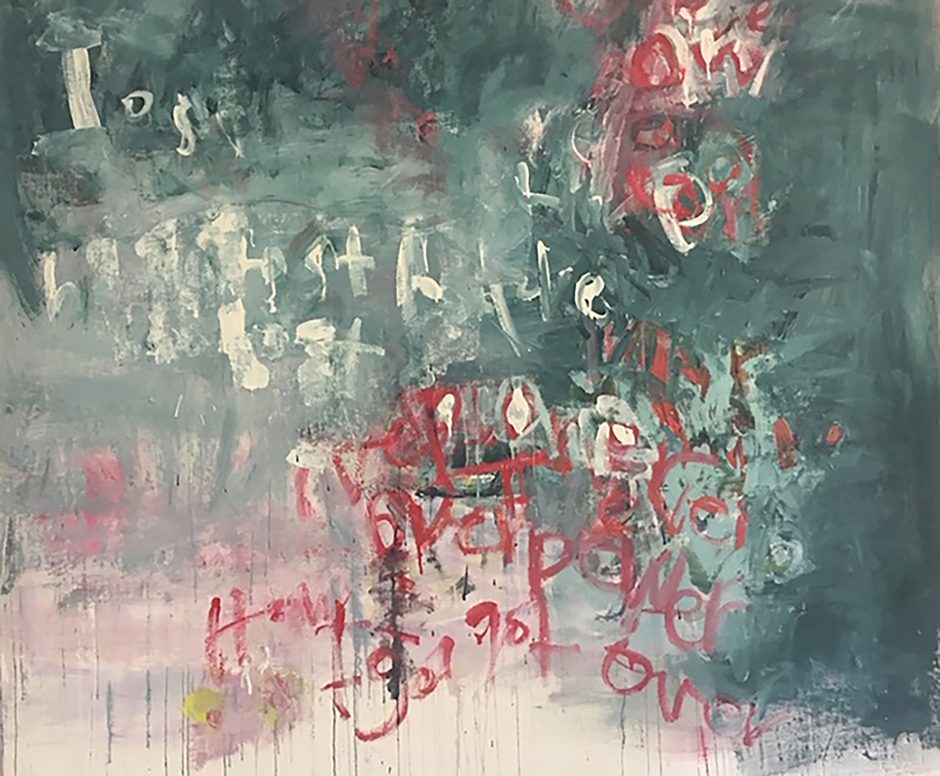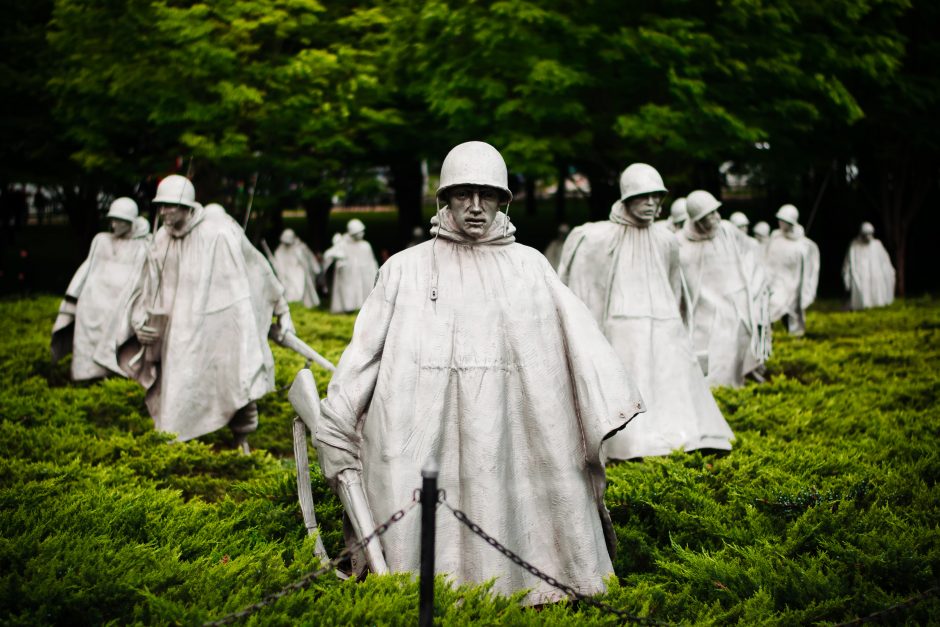Editor’s Note: This post is an excerpt from: THISday-Words for the Vulnerable and the Venerable by Philip Gabbard, a book of essays and *creative nonfiction. Wordsmithing Past The Editor Could you imagine if Mark Twain or Pink Floyd wrote ad copy today? Although, while sixty-second ad copy wasn’t a “thing” in Twain’s day—he was widely heralded for penning some poignant one-liners back in the late 1800s, like saying that common sense ain’t so common. But even Twain had his influencers. Perhaps it was Voltaire who similarly wrote the same line a century and a half earlier. Then in truth, the fact that common sense hasn’t been, well, common has been common since AD 130, when the Roman poet Juvenal first wrote that there was not a more uncommon thing in the world than common sense. And I can only think that that was something Juvenal heard…
“Jacob the Lion Hearted,” Poetry by Thomas Piekarski
Jacob the Lion Hearted He started out trying to climb too high a ladder, fell off, smacked his head, knocked unconscious. But he wouldn’t give up just because the ladder was an obstacle. He wouldn’t give in although he had no grip on any world outside his head. Jacob took advantage of this transcendent state to luxuriate in the expanse of his imagination. He ventured like Alice through fabulous realms clinging to his unique ideals. No one else would ever understand what thoughts were propagated. Nor would he, for memory had fled in a flash. His mind a dream machine, body in suspension, Jacob manufactured fantasies, myths, religions, gave them life, far beyond anything he’d known during this his tenuous tenure on the road of life. ** Andronicus Returns to Earth A smooth landing, the toes…
Katherine Coons: An Autobiographical Art Journey
Artist’s Statement: “My work embraces several concepts simultaneously. The images in this proposal portray an autobiographical picture of my life, my travels, and the places that I have inhabited. I make creations that fit my mood, energy, and temperament. My inspiration comes from the nature that surrounds me, and I am deeply influenced by differences of culture, color, and the diversity of attitudes and ideas gleaned from these aspects. Numerous travels abroad to Europe and Asia have greatly influenced my artworks, having spent much time observing different peoples and their cultures. Documenting my daily thoughts in sketchbooks, and subsequent ruminations on, and drawings from my daily excursions evolve into greater arenas of art making. Collected curios from these places are infused into my mixed media artworks and installations. My creations are derived from these experiences, while my art exhibitions illustrate these memories.” “I am greatly inspired by large, sprawling landscapes such as those of Alaska where I lived for seventeen years. I describe the paintings that evolve from these landscapes as gestural, fleeting sensations of transitory time and place. I would describe my work as expressionistic. Newer paintings include…
“I Shipped Myself Out of Folsom,” by Townsend Walker
Probably ought to start with how I got there. Driving up 395, stopped for coffee in Olancha. Tall, weathered man came into the diner, pulled up a stool like he owned the place. We started chatting—horses, construction, steel work. I’d done it all. Will Thornton had a big ranch out there in the high desert, east of the Sierras. He was looking for help and hired me on. That’s how I met his daughter Holly, not a pretty girl, but with a daddy owning fifteen hundred acres . . . I courted her, but she didn’t take to me much. With Will, I was getting along real well. He liked my work, we chatted about what I’d done, what he’d done, about desert life. One day setting fence posts, he eased into talking about his daughter. Too much a stay-at-home, would never find a man in their town of 192 people. I wasn’t shy about telling him I was sweet on Holly, “be happy to oblige” and he helped me convince her. We got hitched in Reno with Will and Holly’s sister as witnesses. Real soon it started not to…
Milton P. Ehrlich — Poems of Rumination
ONCE Following orders on the battlefield, it was kill or be killed my sergeant said, no different than when he taught me to thrust and parry with fixed bayonet. The young soldier wore thick glasses and looked a lot like one of my classmates. Sergeant claimed Gooks don’t belong to the human race. Don’t ever feel sorry for killing an enemy, I can’t forgive myself. I look down at my finger, ready to squeeze the trigger, and hear my mother asking: What has become of you? ** THE MARITAL HAPPINESS QUOTIENT I Uber my way across the country in my Hugh Hefner silk pajamas to study happiness in marriages of all my old friends who are still walking and talking coherently. Computer porn ended a few bonds that had once bloomed like a flower. For those that served breakfast in bed, a lotus blossom was…
“Broken Hearts & Dead Flowers,” by Michael Summerleigh
BROKEN HEARTS & DEAD FLOWERS (February 1970 – upstate New York) Josh stepped out into the beginning of the day, heard the steel door slam behind him as he pitched the black garbage bag into the dumpster. He checked the door once to make sure it had locked, buttoned his denim jacket up around the paper sack of unsold apple crisps and burgers, jammed his hands down into the pockets of his jeans. It had been a slow shift, some heavy wind and a couple of inches of snow discouraging the stoners from boarding the Midnight Munchie train that usually kept the Jack-in-the-Box busy through the night. He’d sent Kyle and Donnie home at two, started shutting everything down around three-thirty. . .picking up wax paper burger wraps and empty Zig Zag sleeves in the small…
“Ethereal Tryst,” Poems by Horacio Chavez
Ethereal Tryst Meet me where the pink hued clouds entwine with infinity So, will we conjoin in our appointed waltz Upon that coral floor together in unity To enjoy what is and bemoan that which remains Our fate to hunger… Our union asunder Our feet skillful We dance the dance fate has called out Without malice though willful We are without doubt For all but our destiny… We step carefully Accepting that which is within our grasp In lieu of that wish that eludes Satisfied with the fortuitous clasp Of mind and spirit to conclude The interlude… Of our love subdued Perhaps fate will grant our desire Beyond the tryst that both plagues And blesses the fire Kindled by the wave That we may forever crave… Our ethereal tryst ** In Love With a Poet So you’re in love with a poet you say …
“Dimples of Haiti,” Poetry by Mbizo Chirasha
DIMPLES OF HAITI Haiti, stink of sweat smelling millet slavery and the scent of blood revolutions. Slapped in the face with sanctions mud by hands under the influence of imperialistic alcohol. A super-concoction of propaganda maize porridge and Media yeast. Waterfalls of anger washing away your freedom dimples Handmaidens and mental epileptic waiters serving political syphilis in ideological cafes Children smelling stale ideological urine and dirt diplomatic cocaine Identities condomised with donor culture and sexual myopia Baboons eating colors of your flag, munching apples of your freedom Tongues kissing bottom streams of the state under the veil of democracy gospel Haiti, my pen is a weapon of mass instruction, I see the spreading yellow York of the sun, gently falling over the darkness of your skin, yawning off the old skin of dust, Regaining the lost richness of your dimples. ** DAWN OF…
“The Escape to Candyland,” A Review
In Yong Takahashi’s debut collection of stories, The Escape to Candyland, the main character is dilemma. That’s the featured role in this series of recursive, interwoven stories: the human heart in conflict with itself. Takahashi’s protagonists labor under myth-like predestination and curse; they are often tortured by the knowledge of what ails them, compounded by the inability or unwillingness to overcome it. Hence dilemma. Very few suffer in ignorance – most of the men and women in these stories know they are beset by a personal menace (an abusive husband, guilt over a brother’s death, an obsessive-compulsive mother), and many understand that their deliverance lies in plain sight, but who among them can seize it and afford to lose a pillar of their identity – past trauma. Perhaps, then, the apt word to describe each member of…
“After Thucydides,” Poems by Bruce Robinson
After Thucydides Read to you my silent poem, how does it go? Goes without saying, va sans dire. And then someone spoke and there was the largest crowd in history, and a luminous array of tariffs made us rich again which after all was our pre-existential condition before the construction of our glorious, seguro- will-cover-it wall, and we learned that however true it may…be.. that truth is something intermittent, which is how some histories are written. ** It’s Your Past Catching Up with You and then your past catches up with you, or tries to, and then your past tries to oscillate your future, or makes a very good effort to be closer than it appears and then you’re past all caring, all over-canvassed tenses meet each other mid-stream, toll…










